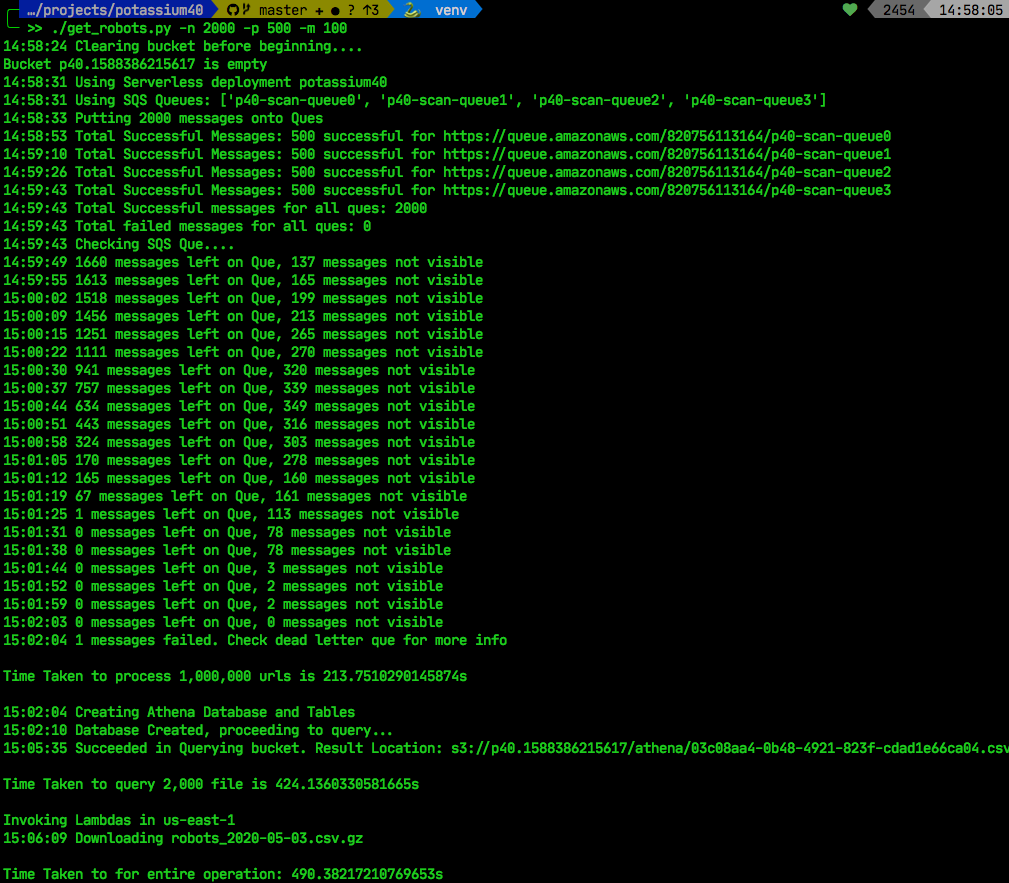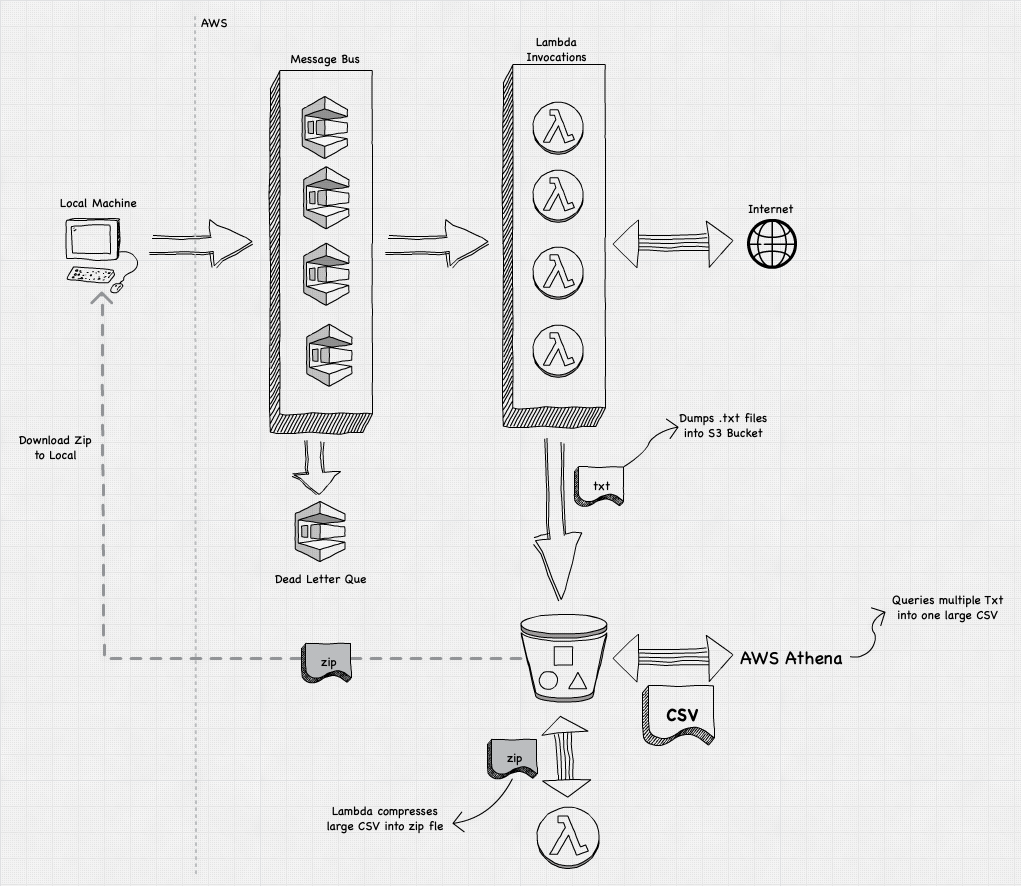An application level scanner build on parallel AWS Lambda Functions!
Pottasium40 is application level scanner, that's built for speed..
It uses AWS Lambda functions to invoke up to 1000 parallel functions to perform application level scans on a list of domains/ips.
This project proof-of-concept that will grab and download all robots.txt files from the cisco umbrella top 1 million. The code can be changed to grab any other file, or check for http-headers, presence of folders etc.
This is not a port-scanner.
It's an application level scanner, that can scan websites for specific content, create a http connection to a specific url, including handling redirects and negotiating TLS connections. If you want to scan ports, I suggest you use masscan.
NOTE: Potassium40 runs on Amazon Web Services (AWS), and while for most use-cases it'll fit into the free-tier, you will be charged if you go overboard. A scan of 1 million websites can be run ~10 times before you have to start paying, roughly $0.60 per 1 million websites.
Serverless Framework Python3.6 (or 3.7)
$ git clone https://github.com/keithrozario/potassium40.git
$ cd potassium40/lambda
$ sls deploy
$ cd ..
$ python3 -m venv venv/
$ source venv/bin/activate
$ pip install -r requirements.txt
For information of what is deployed during the install.
By default all installations are done in ap-southeast-1 but you can change this. The script uses the serverless framework to deploy, you will need this as well.
$ ./get_robots.py
To scan all 1 million use the following:
$ ./get_robots.py -n 800 -p 1250 -m 125
the n command line argument is the number of lambda invocations. Each lambda will scan 1250 websites, hence 800 would scan all 1 million.
$ cd lambda
$ sls remove
NOTE: an s3 bucket is created on install with the name p40. , please delete all files in the bucket before performing sls remove.
This tool is still in beta mode. Use at your peril. But look at these results:
I intend to write in more detail about the architecture, but for now here's a quick n' dirty diagram
If you just want the robots.txt files, here's a scan I did on 03-May-2020.
I'll have to clean up this repo. It's too messy :)
keith (at) keithrozario.com



